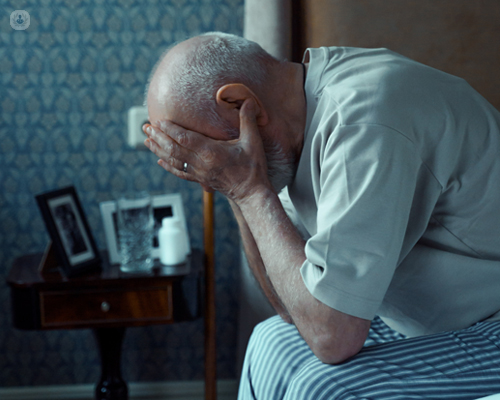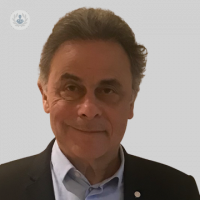Pinpointing the issue: Acupuncture for migraines
Written by:The symptoms associated with migraines can significantly affect quality of life, and while medication is available, it may only be a temporary fix especially for those who have ongoing, chronic issues. Here is where acupuncture for migraine provides a possibility for a more natural, and arguably, effective option. Frequency of attacks, pain intensity and other symptoms are all said to be reduced.
Dr Selwyn Dexter, specialist GP in medical acupuncture, provides a detailed guide into how acupuncture is used to treat migraines in this informative article.

How does acupuncture help in treating migraines?
Approximately fifteen percent of the world population have migraines. It's thought to affect more women than men, and hormones play a large part. Acupuncture is a scientifically-validated treatment for migraines and over my years of practice I’ve helped many patients. The consultation before acupuncture treatment is just as important as the treatment itself, in order to identify triggers and causative factors of the individual patient’s condition.
Acupuncture can reduce the frequency of a patient’s migraine attacks and sometimes stop them from occurring for some months, or a considerable amount of time, when further treatment would be needed without it. It can reduce the intensity of the pain and also have an ameliorating effect on other symptoms such as vomiting, light sensitivity and mood changes associated with migraine. Importantly, it can reduce the need of analgesia and the medication taken to control them.
Where are the acupuncture points for this?
The common acupuncture points are in:
- The nuchal (posterior neck) area;
- Sometimes around the head when very fine needles are used;
- And the feet and/or hands.
Patients can vary as well as the acupuncture points. Some patients can have strong reactions and may only need a few needles, sometimes as little as 1 or 2. Generally, patients will need more.
How long does each session take?
The initial session, including a full consultation can take around an hour. Follow-up sessions last around 30 to 45 minutes. This includes discussing the patient’s progress and ongoing treatment.
How many sessions are needed?
Usually, patients will need around 5 or 6 sessions. Acupuncture is a very pragmatic treatment and its effectiveness can be assessed early on in treatment. The first three sessions are usually weekly and usually within these three sessions, both patient and doctor can tell if the acupuncture treatment is beneficial.
Are there any side effects from acupuncture?
Acupuncture is a very safe technique. The needles used are much finer than needles for taking blood, for instance. Acupuncture can make you very relaxed during and after treatment. Occasionally, as you are using needles it can cause minor bleeding and bruises. Some patients sleep well after treatment. There can sometimes be rare idiosyncratic reactions where a patient may feel very tired after treatment or have a change of mood, although the latter is very rare.
Is acupuncture useful in non-migraine headaches?
Acupuncture is useful in chronic muscular tension headaches and in some cluster headaches.
To arrange an appointment with Dr Dexter and address your chronic migraine issues, visit his Top Doctors profile.


